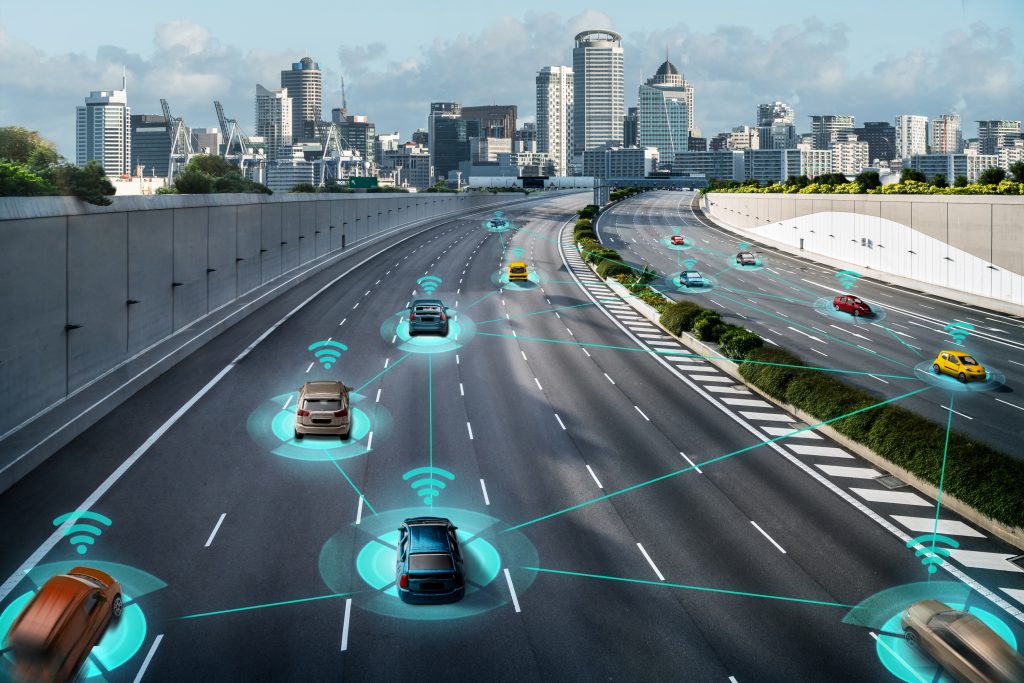Have you ever wondered how Artificial Intelligence (AI) is transforming the world of autonomous vehicles and transportation? AI has revolutionized the way we travel, enabling the development of self-driving cars and reshaping the transportation industry as a whole. But what exactly is the role of AI in this domain? How does it enhance the efficiency and safety of autonomous vehicles? And what potential applications does it hold for the future? In this discussion, we will take a deep dive into the fascinating world of AI in autonomous vehicles and transportation, exploring its impact, functionalities, and the exciting possibilities it brings. So, buckle up and get ready to explore the cutting-edge technology that is shaping the future of transportation.
AI Algorithms for Sensor Data Processing
AI algorithms play a crucial role in processing sensor data for autonomous vehicles. These algorithms are responsible for the accurate and efficient analysis of the vast amounts of data generated by sensors in real-time. The sensor data processing involves several steps, including data generation, data analysis, and decision-making.
In the data generation phase, sensors such as cameras, LiDAR, and radar collect data about the vehicle’s surroundings, including the position of other vehicles, pedestrians, and road conditions. This raw data is then fed into the AI algorithms for analysis. The algorithms use advanced machine learning techniques to interpret the data and extract relevant information, such as identifying objects, predicting their movements, and recognizing potential hazards.
The data analysis phase involves processing the sensor data and combining it with other relevant information, such as maps and traffic patterns. The AI algorithms analyze this data to make informed decisions about the vehicle’s actions, such as accelerating, braking, and steering. These algorithms can detect and respond to potential dangers in real-time, significantly reducing the risk of accidents.
According to market projections, the autonomous vehicles and ADAS market is expected to reach $173.15 billion by 2030. This growth is driven by the increasing adoption of AI algorithms in autonomous vehicles, which are seen as a key technology for improving safety and efficiency in transportation. The use of AI algorithms for sensor data processing is paving the way for a future where autonomous vehicles are the norm, revolutionizing the way we travel and reducing accidents on our roads.
Data Generation and Analysis in Autonomous Vehicles
In the realm of autonomous vehicles, data generation and analysis play a crucial role in ensuring the safe and efficient operation of these vehicles. Data analysis is essential for autonomous vehicles to make informed decisions and navigate their surroundings effectively. Sensor fusion, which combines data from various sensors such as cameras, lidar, and radar, allows for a comprehensive understanding of the vehicle’s environment. Machine learning algorithms process this data in real time, enabling the vehicle to learn and adapt to different scenarios. Real-time processing is vital for the timely execution of actions, ensuring the vehicle can respond to changing conditions promptly. Data privacy is also a significant concern in autonomous vehicles, as they collect vast amounts of personal and environmental data. Striking a balance between collecting the necessary data for safe operation and protecting individuals’ privacy is crucial. Robust data analysis techniques and privacy protocols are necessary to address these concerns. Overall, data generation and analysis are fundamental components of autonomous vehicles, enabling them to operate safely, efficiently, and with consideration for privacy.
ADAS Technologies and Accident Reduction
Data generation and analysis in autonomous vehicles lay the foundation for ADAS technologies, which have shown great potential in reducing accidents and improving road safety. Here are four key advancements in ADAS technology that contribute to these safety benefits:
- Collision Avoidance Systems: ADAS technologies utilize AI algorithms to detect potential collisions and provide warnings or intervene to prevent accidents. These systems use sensors, cameras, and advanced algorithms to analyze the environment and make real-time decisions to avoid collisions.
- Lane Departure Warning: ADAS systems can monitor lane markings and issue alerts when a vehicle deviates from its lane without signaling. This helps prevent accidents caused by driver distraction or drowsiness by providing timely warnings to the driver.
- Adaptive Cruise Control: AI-powered ADAS technologies enable vehicles to maintain a safe distance from the vehicle ahead, automatically adjusting speed to match traffic conditions. This reduces the risk of rear-end collisions and improves overall traffic flow.
- Automatic Emergency Braking: ADAS systems can detect potential collisions and automatically apply the brakes to prevent or mitigate the impact. This technology is especially effective in situations where human reaction time may be insufficient to avoid an accident.
While ADAS technologies offer significant safety benefits, there are also ethical considerations and challenges in implementing autonomous vehicles. Ethical questions arise regarding the decision-making process in potentially life-threatening situations. Additionally, integrating autonomous vehicles into existing transportation infrastructure and ensuring their compatibility with other road users pose technical and regulatory challenges that need to be addressed for widespread adoption.
Market Projections for Autonomous Vehicles and ADAS
Market projections for autonomous vehicles and ADAS indicate a significant growth potential in the coming years. The market is expected to reach a value of $173.15 billion by 2030. This growth is driven by the increasing demand for advanced driver assistance systems (ADAS) and the adoption of autonomous vehicles across various industries.
One of the key factors contributing to this growth is the continuous advancement in sensor technology. Autonomous vehicles rely on sensors to gather data about their surroundings, and the processing of this sensor data plays a crucial role in their operation. AI algorithms are used to analyze and interpret this data, enabling autonomous vehicles to make real-time decisions and navigate safely.
Moreover, the generation and analysis of large amounts of data are also driving the market for autonomous vehicles and ADAS. Autonomous cars generate up to 4 terabytes of data per day, and companies like Waymo have already analyzed over 20 petabytes of driving data. This data is valuable for improving the performance and safety of autonomous vehicles.
Furthermore, the potential for accident reduction is another factor contributing to the market growth. ADAS technologies powered by AI have the potential to reduce accidents by up to 40%. This has led to increased interest and investment in autonomous vehicles and ADAS, as companies and governments aim to improve road safety.
Lastly, the growth of the autonomous vehicles and ADAS market is also expected to create job opportunities. AI in the automotive industry is projected to create 12 million new jobs in the transportation and automotive sectors by 2025. Salaries in the autonomous vehicles and ADAS field are higher than traditional automotive engineering roles, with senior-level positions commanding salaries upwards of ₹25 lakhs per annum ($34,000) or more.
Job Creation in the Automotive Industry
The growth potential in the market for autonomous vehicles and ADAS is not only driving advancements in sensor technology and data analysis, but it is also creating new job opportunities in the automotive industry. As the demand for autonomous vehicles continues to rise, the job market in the automotive sector is experiencing a significant surge in employment opportunities. Here are four aspects of job creation in the automotive industry:
- Labor demand: The development and deployment of autonomous vehicles require a skilled workforce to design, test, and maintain these advanced technologies. The automotive sector is witnessing a high demand for professionals with expertise in areas such as AI, machine learning, robotics, and software engineering.
- Skill requirements: With the integration of AI in autonomous vehicles, the skill requirements in the automotive industry are evolving. Professionals with knowledge in computer vision, sensor fusion, control systems, and data analysis are highly sought after. Additionally, expertise in cybersecurity and ethical considerations related to autonomous systems is becoming increasingly important.
- Diverse roles: The job market in the automotive industry offers a wide range of roles and positions. From software developers and AI engineers to data scientists and cybersecurity specialists, there are numerous career paths available for individuals interested in working with autonomous vehicles and ADAS.
- Competitive salaries: Salaries in the autonomous vehicles and ADAS field are often higher than traditional automotive engineering roles. Entry-level positions can start from ₹6-8 lakhs per annum ($8,000 – $11,000), while senior-level positions can command salaries upwards of ₹25 lakhs per annum ($34,000) or more.
The job creation in the automotive industry is driven by the increasing demand for autonomous vehicles and the need for skilled professionals to develop and maintain these technologies. As the industry continues to evolve, there will be even more employment opportunities and an ongoing demand for individuals with the right skill set to contribute to the advancement of autonomous transportation.
Salaries and Career Opportunities in Autonomous Vehicles
Salaries and career opportunities in the field of autonomous vehicles offer high earning potential and a wide range of roles for individuals with the necessary skills and expertise. The job prospects in this industry are promising due to the rapid growth and market demand for autonomous vehicles. Technological advancements in AI have revolutionized the transportation sector, creating a need for professionals skilled in developing and implementing autonomous systems.
With the increasing adoption of autonomous vehicles, there is a growing demand for experts in various areas such as AI algorithms, sensor technology, machine learning, and software development. Companies are seeking individuals who can design and optimize autonomous driving systems, ensuring safety and efficiency on the roads. The skill requirements for these positions include a strong background in computer science, robotics, and AI, along with a deep understanding of automotive engineering.
In terms of salaries, the autonomous vehicles and ADAS field offers higher earning potential compared to traditional automotive engineering roles. Entry-level positions can start from ₹6-8 lakhs per annum ($8,000 – $11,000), while senior-level positions can command salaries upwards of ₹25 lakhs per annum ($34,000) or more. As the industry continues to grow and evolve, there will be ample opportunities for career advancement and specialization in this exciting field.
Demand for Skilled Professionals in India
With the rapid growth and market demand for autonomous vehicles, the field of autonomous vehicles and ADAS in India presents significant opportunities for skilled professionals in various areas such as AI algorithms, sensor technology, machine learning, and software development. The demand for a skilled workforce in this industry is driven by the exponential growth of the autonomous vehicles market and the need for advanced technologies to ensure safe and efficient transportation. To meet this demand, several training programs and educational opportunities have emerged to equip individuals with the necessary skills and knowledge.
In the job market, the demand for professionals with expertise in AI algorithms, sensor technology, machine learning, and software development is steadily increasing. Companies are actively seeking individuals who can contribute to the development and implementation of autonomous vehicles and ADAS technologies. The industry growth in India has created a favorable environment for job seekers, offering competitive salaries and rewarding career prospects.
To excel in this field, it is essential for professionals to stay updated with the latest advancements in autonomous vehicles and ADAS technologies through continuous learning and skill development. By leveraging the available training programs and educational opportunities, individuals can enhance their expertise and become valuable assets in the autonomous vehicles industry. The future of autonomous vehicles in India relies heavily on a skilled workforce that can drive innovation and contribute to the growth of this transformative industry.
Read next:



